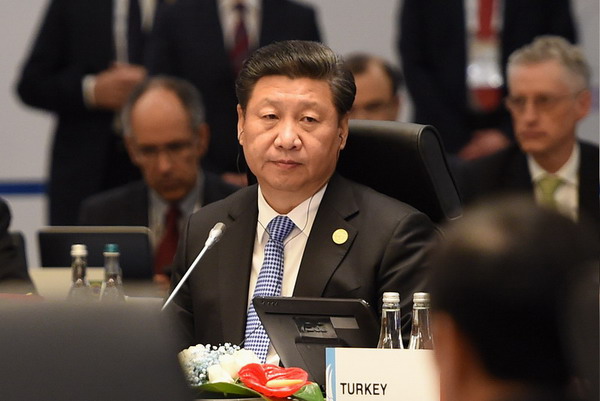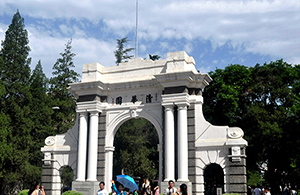G20 should work together for growth
(China Daily) Updated: 2015-11-17 07:59
|
 |
|
Chinese President Xi Jinping attends the first session of the 10th summit of the Group of Twenty (G20) major economies in Antalya, Turkey, Nov. 15, 2015. [Photo/Xinhua] |
In face of the slowest growth since the global financial crisis in 2008 and 2009, the G20 members must shoulder their collective responsibility to promote growth.
By calling for closer cooperation to address the immediate issue of stabilizing growth and providing momentum for long-term development, Chinese President Xi Jinping has pointed out the way for the G20 to exercise its leadership in shoring up global growth and generating more concrete beneficial outcomes.
The G20 economies account for about 85 percent of the global GDP, 80 percent of world trade, and two-thirds of the human population, and the group is now the main forum for promoting global economic and financial cooperation, having proved its capabilities with timely and effective collaboration to address the global financial crisis.
However, it has become increasingly difficult for the G20 to deliver big outcomes over the years.
This year's G20 summit was held in Turkey on Sunday and Monday, prior to which the International Monetary Fund had not only already cut its forecast for global growth to a mere 3.1 percent this year, the slowest annual growth since 2009, but also warned that the global economy faces risks from the persistent low growth.
The disappointing global growth prospects have laid bare the G20's inability to deliver on previous targets. Last year, the G20 leaders agreed to put policies in place that would raise their collective GDP by an additional 2 percent by 2018. But the current growth momentum does not allow too much room for optimism if policy coordination is not strengthened to ensure global financial stability, especially as the United States is expected to begin raising interest rates soon.
To maintain stable global economic growth in the short term and inject new impetus in the long run, the G20 members must press ahead with the transition from crisis response to long-term governance as soon as possible.
As the host of the G20 summit next year, China will shoulder the responsibility of driving global growth by pushing ahead with its transition to sustainable growth driven by innovation and consumption, and advancing its opening-up and shared development initiatives in the coming years.
China will also strive to forge new consensus among G20 leaders on building an open world economy to facilitate international trade and investment and achieve equitable and inclusive development.











